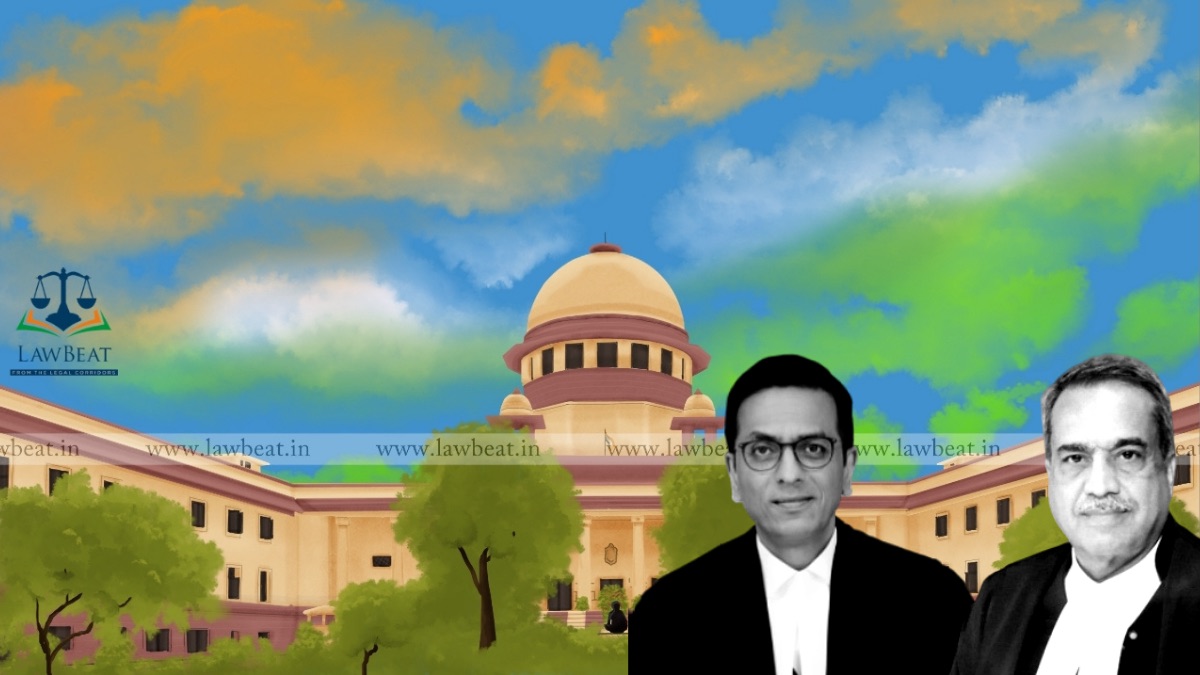Repugnancy Also Arises Where the State Makes an Identical Law : Supreme Court while hearing plea Challenging Constitutionality of WB Housing Regulation Act

Supreme Court Bench of Justice DY Chandrachud and Justice MR Shah on Tuesday continued hearing the plea filed by Forum For Peoples Collective Efforts (FPCE), an umbrella home buyer association challenging the constitutional validity of West Bengal Housing Industry Regulation Act, 2017 (“WB-HIRA”), as notified in June, 2018.
An interesting remark made by Justice Chandrachud, with respect to the legislative competence of a State in a field where there is an existing Central law was;
“Repugnancy also arises when the State makes an identical provision, because if the Parliament intends to legislate on a particular subject, in a particular field, identical provision creates repugnancy.”
Senior Advocate Mr. Rakesh Dwivedi appeared for the State of West Bengal. Learned ASG Ms. Bhati appeared for the Union.
“Industries in entry 24 could not nullify the entries in concurrent list. Industry has to be construed narrowly; if some matter is covered by some other entry, it should stand out ”, submitted Senior Counsel Dwivedi.
Large part of his submissions were made on legislative intention and application of Section 88 and 89 of the RERA Act. Reliance was placed on the case of M. Karunanidhi v. UOI and Tika Ramji.
Learned Counsel further cited and drew analogies from (1979) 3 SCC 47 Para 11 & 14, KSL Industries Limited, (2015) 1 SCC 166 Para 34 to 40, MD Frozen Foods, (2017) 16 SCC 741 and (2019) 8 SCC 416, Para 25 to 27.
Senior Counsel Mr. Dwivedi concluded his submissions by making following two arguments;
(1) The idea of repugnancy implies an irreconcilable conflict and in the absence of conflict (as in the present case), the State law cannot be said repugnant, more so when Central law is completely hinged on the executive power of the State Government, barring rule making.
(2) Even in the absence of Section 88 and 89, the Parliament cannot cover the field exhaustively; the State must have power to compliment and supplement.
FPCE in their plea prayed for passing an order declaring the West Bengal Housing Industry Regulation Act, 2017 as ultra vires the provisions of the Constitution of India and consequently, issue appropriate writ/order or direction in the nature of writ of mandamus/order directing the State of West Bengal to not enforce the provisions of the West Bengal Housing Industry Regulation Act, 2017 within the State of West Bengal.
“RERA was in force before the state of West Bengal enacted HIRA & that HIRA was in direct conflict with RERA. The conflict between the two statutes included differences such as sale of open car parking spaces as opposed to garages with walls and roofs, the compounding of offences which should be tried by courts & definition of events falling under force majeure. Both HIRA & RERA were enacted to ensure better accountability to consumers & to promote & regulate the real estate sector.”, the plea stated.
The Division Bench comprising Justice AK Sikri and Justice Abdul Nazeer February 11, 2019 issued notice to the standing counsel for the state & the Union of India.
Case Title: Forum For Peoples Collective Efforts (FPCE) And Anr. v. The State Of West Bengal And Anr.| W.P.(C) No. 116/201
